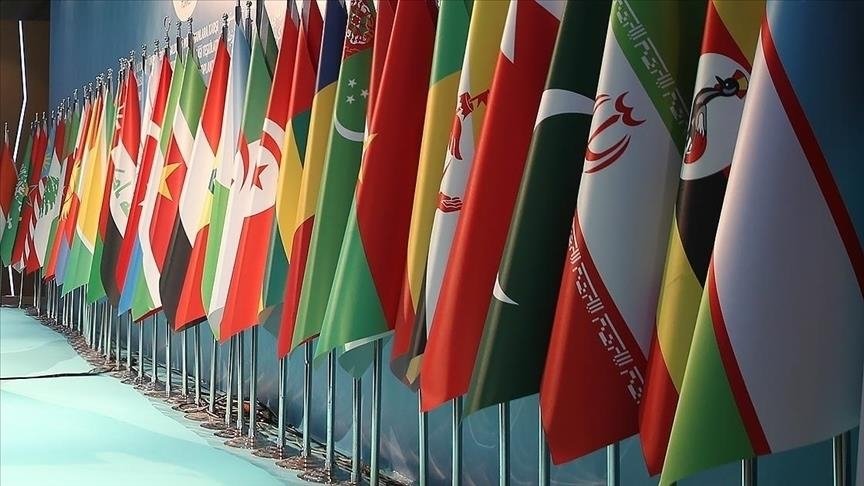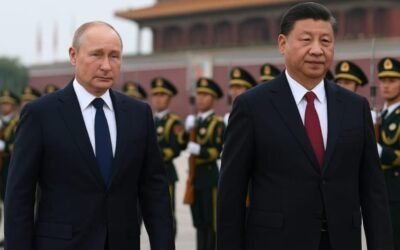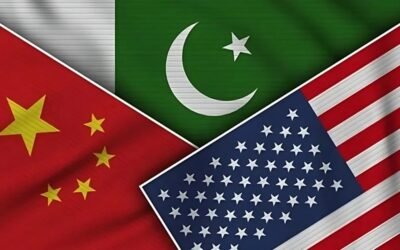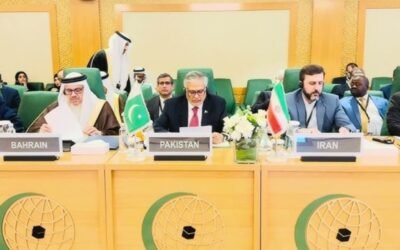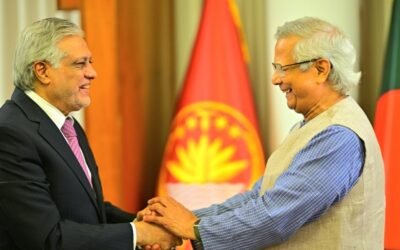Introduction
OIC, the second-largest intergovernmental organization after the United Nations, was founded in 1969 following the arson attack on the Al-Aqsa Mosque in occupied Al Quds (Israel refers to it as Jerusalem) by Israeli terrorist groups. It serves as a unified voice for 1.9 billion Muslims across 57 member states. Pakistan has consistently led in supporting Muslim causes worldwide, from standing with Kashmir and Palestine to advocating for Muslim rights in Myanmar and Bosnia. It also works to resolve conflicts in Muslim-majority countries like Afghanistan, Yemen, Syria, and Libya, and supports Iran while condemning US and Israeli strikes on Iran. Pakistan’s diplomatic leadership and solidarity have played a central role in the OIC over the years, emphasizing the unity of the Muslim Ummah.
Since the 1969 Rabat Summit, Pakistan has played a key role in establishing the OIC because of its Pan-Islamic identity and commitment to Muslim solidarity. The second OIC Summit was held in Islamabad in 1974, chaired by Prime Minister Zulfikar Ali Bhutto, which not only elevated Pakistan’s status but also recognized the Palestine Liberation Organization (PLO) as the sole representative of the Palestinian people in the international community. During the 1980s and 1990s, Pakistan used diplomacy to try to resolve issues such as the Afghan-Soviet conflict and the Iran-Iraq war, all while remaining neutral to gain support within the OIC and promote unity in the Muslim Ummah.
Between 2001 and 2018, Pakistan actively engaged in the OIC to raise awareness about the Kashmir issue, address human rights abuses, and differentiate terrorism from legitimate resistance during the War on Terror. Pakistan also supported the causes of Muslim minorities in Bosnia, Chechnya, and Myanmar, while promoting unity among Muslim nations despite internal disagreements. Additionally, it backed a progressive approach to counter terrorism, emphasizing the need for reform and ideological moderation within the Muslim world.
Contemporary Leadership and Emerging Challenges
In the last decade, Pakistan has revitalized its role in the OIC in response to growing regional and international challenges. The government of Pakistan has supported Muslim unity and justice on the global stage and has also criticized the spread of Islamophobia in the West. It called for a collective approach by the OIC in its efforts to defend the sanctity of the Prophet Muhammad (PBUH) and Muslim identity as a religion, which was widely welcomed. Pakistan’s stance at the 2019 OIC meeting was echoed across the Muslim world, highlighting Pakistan’s commitment to Muslim unity.
Another constant aspect was that Pakistan continued to emphasize the Kashmir issue, especially after India’s August 2019 abrogation of Article 370 in Indian Illegally Occupied Jammu and Kashmir. Islamabad effectively pushed to host OIC meetings, despite complex diplomatic challenges and global political factors, to hold a full foreign ministers’ conference, Pakistan persisted in diplomatic lobbying. In 2022, the country hosted the 48th Session of the OIC Council of Foreign Ministers in Islamabad, focusing on unity, justice, and development under the theme “Partnering against Unity, Justice and Development,” reaffirming its support for Palestine, Kashmir, and Afghanistan.
During recent meetings of the OIC, Pakistan condemned the Israeli and U.S. attacks on Iran and called them violations of Muslim sovereignty and international law. By supporting Iran in global forums, Pakistan seeks to promote unity among Muslims and also acts as a balancing force against external interference in the Muslim world.
Pakistan Narrative within the OIC
Islamabad has repeatedly urged the OIC to become a proactive organization rather than a reactive one, calling for reforms in its institutions, increased economic cooperation, and a more assertive Islamic bloc in global politics. However, its efforts have often been hindered by internal conflicts among member states, such as the tensions between Saudi Arabia and Iran. Additionally, Pakistan’s economic ties with some Gulf states have at times limited its ability to pursue more ambitious goals, especially when these do not align with the interests of key members.
Structural Challenges and Pakistan’s Commitment
Although many resolutions have been adopted, the OIC often struggles to produce significant results, especially regarding ongoing issues like Palestine and Kashmir. The organization has faced criticism for failing to turn its symbolic statements into actions due to its organizational and structural limitations. As a multilateral institution that relies on consensus-based decision-making and lacks an enforcement mechanism, the OIC can only depend on moral persuasion, which has little impact in the absence of collective political, military, or economic strength among Muslim countries.
Despite these restrictions, Pakistan has remained a leader in promoting unity and cohesion within the organization. However, the principled stance Pakistan has taken in condemning Western aggression—especially regarding recent developments involving Israel and the United States—and in defending Iran in OIC forums strengthens its longstanding Muslim solidarity and the cause of justice. This is particularly evident in its consistent support for Palestine and its firm position of non-recognition of Israel until a solution for Palestinian freedom is achieved. With global tensions rising, Pakistan’s role as a mediator and advocate within the OIC is increasingly essential and evolving.
Conclusion
In conclusion, Pakistan’s contribution to the OIC since the organization’s founding in 1969 up to today can be seen as advocating for Muslim unity, justice, and resistance against oppression. As a supporter of the causes of Palestine, Kashmir, or in protests against foreign aggression, Pakistan has positioned itself as a principled and active member of the Islamic bloc. Despite internal issues within the OIC, Pakistan continues to uphold its goal of a unified Muslim world on international platforms, reaffirming its commitment to the shared interests of the Ummah.
To strengthen its influence in the OIC, Pakistan must focus more on building stronger coalitions among member states, especially by bridging gaps between major players like Iran, Saudi Arabia, and Turkey, to promote unified positions on global Muslim issues. Pakistan should continue pushing for institutional reforms within the OIC to improve its enforcement mechanisms and ensure prompt, coordinated responses to issues, particularly in Palestine, Kashmir, and regions with ongoing oppression of Muslim communities. Additionally, Pakistan needs to pursue long-term diplomacy, enhance its cultural and educational outreach to the Muslim world, and promote mutual cooperation to tackle Islamophobia, economic inequality, and technological development. Finally, to increase credibility and effectiveness, Pakistan would benefit from reducing its over-reliance on any single bloc within the OIC and expanding its leadership to be more inclusive.

